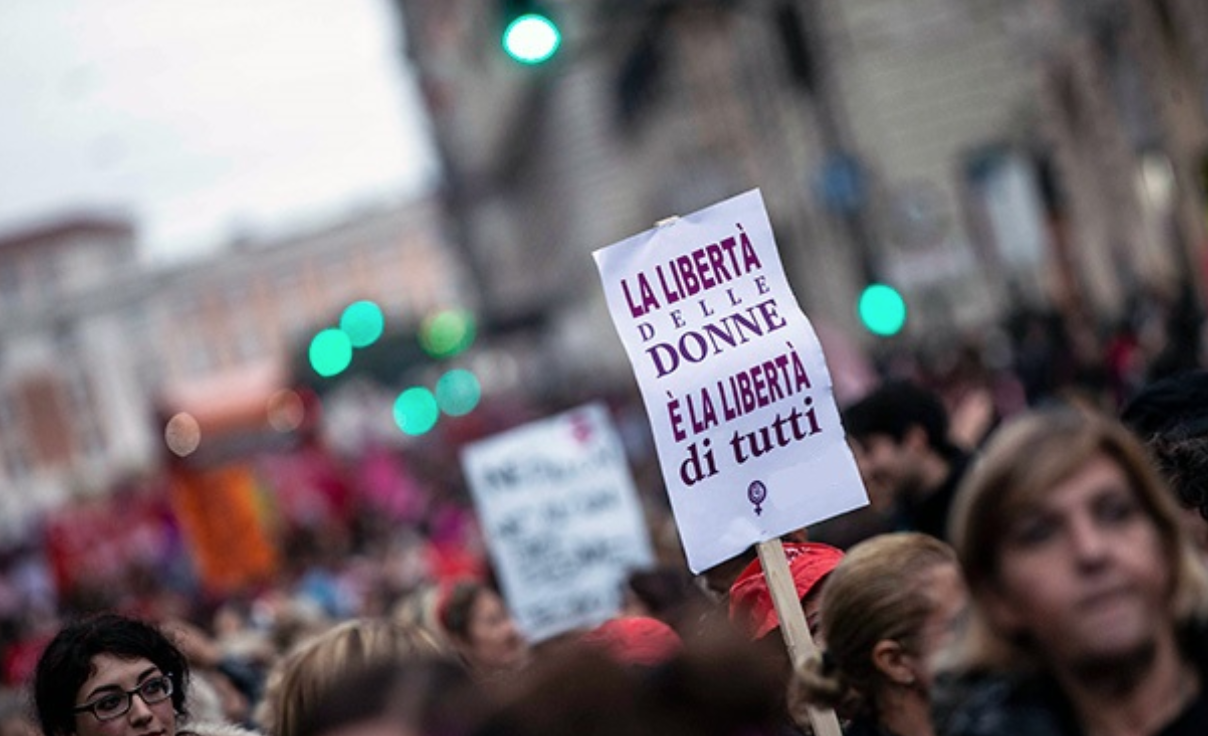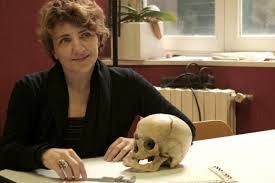Mimosa May Fade but Italian Women Don't
ROME -- On March 8, International Women's Day since 1910, the Italian tradition is to honor a woman by handing her a sprig of yellow mimosa, among the earliest and loveliest of Spring flowers. But even as the mimosa blossoms fade, the women do not, and it is noteworthy that, well after Women's Day, interest in the world of women does not.
The most outrageous news is from Ancona. There, four years ago, a Peruvian lass of 22 went drinking with two male fellow students. After abundant booze -- so she says -- she found herself the victim of rape by one of the youths while his mate allegedly looked on. Accompanied by her mother, the young woman went to police. Medical examination showed injuries typical of rape, and a blood test showed she had received a psychotic substance. When the matter wound up in court, the two youths received sentences of five and three years respectively.
But then the two young men took the case to an appeals court, where in July 2016 a three-woman tribunal declared the lads not guilty and said that they suspected that she may just have been suing for money. The reasoning for their absolution: the girl -- described by the judges as "the sharpster Peruvian" -- is singularly unattractive, and looks too masculine for anyone to bother raping. "Her photo in the files confirms this," said a note in the judicial procedures. Further proof was that the youth, in his mobile phone, called her "a Viking," which is to say (if only in the opinion of this trio of judges) that she was too mannish. However, "this is not a beauty contest," one observer complained. The main complainant, thanks be, is the Italian court system, which overthrew the dodgy verdict and has ordered a full retrial.
Speaking of judges and the Constitutional Court, on the brighter side is Judge Marta Cartabia, 55, only the third woman to serve as constitutional court justice. Nominated in 2011, she is a full professor of law at the Bocconi University of Milan. Wife and mother of three, in a March 8 interview she was asked if she ever felt discriminated against as a female. "Not particularly," she responded, "I consider myself above all sustained by the academic life where I can count upon genuine allies, by my own teachers and by my husband." On the other hand, she added, when she appears at events with her (male) assistant, he is always taken to be the famous professor and she, his assistant. "I do feel sometimes that I have a weightier burden than my male colleagues," she conceded.
Another outstanding, and extraordinarily successful, Italian woman is astronaut Samantha Cristoforetti, whose new book, "Diario di un'apprendista " (Diary of an apprentice astronaut), is being presented March 15. In her book Cristoforetti describes the 199 unforgettable days between Nov. 23, 2014, and June, 2015 she spent aboard the International Space Shuttle (ISS). Today, she said in an interview, her longing is to return into space. And because China is involved in future space explorations, she is now studying Chinese.
Cristina Cattaneo, 55, is a forensic doctor whose work examining the dead amounts to the work of a detective. For years she has been working on the corpses and bones of the hundreds of migrants who drowned off the Libyan coast and especially those who lost their lives near the isle of Lampedusa. In her new book, "Naufraghi senza volto: Dare un nome alle vittime del Mediterraneo" (Drowned without a face: Giving a name to the victims of the Mediterranean), she writes that every item found on the remains tells a story, such as a Juventus T-shirt, a library card or the report card sewn into the shirt of a little boy. "Behind each object is a life," she says. Dr. Cattaneo works the team of the Laboratory of Anthropology and Forensic Odontology of the State University of Milan.
Obviously not all outstanding Italian women are as famous as Judge Cartabia, astronaut Cristoforetti and forensic professor Cattaneo. International Women's Day also brought to the fore in Italy Elena Bairan, a baker in Rome's crowded San Giovanni quarter. In late afternoon every day she places a basket of bread and rolls in a corner of the bakery with a sign "Free Bread for Those Who are Hungry." She is hardly alone: any number of bakeries do the same, throughout Italy.
It also made news that Italian women now approach power as bosses in companies and in the bureaucracy, with 52 women managers for every 54 men. On the other hand, the news was also broadcast, for March 8, that women in Italy continue to lag behind the men in most other positions of power. Among university presidents only 6 are women, by contrast with 76 men. One thousand women are mayors while seven times more are men. As for business managers, only 5,000 are women versus 17,000 men. In terms of jobs, women make up almost 50% of the employees and men, almost 69%.






































i-Italy
Facebook
Google+
This work may not be reproduced, in whole or in part, without prior written permission.
Questo lavoro non può essere riprodotto, in tutto o in parte, senza permesso scritto.